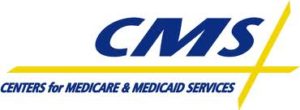COVID-19 Update: March 27, 2020
The following is a summary of the major COVID-19-related developments in Pennsylvania as of 4:30 p.m. on March 27.
Pennsylvania Updates
 Governor Wolf
Governor Wolf
- Today Governor Wolf expanded his ‘Stay at Home’ order to include nine more counties to mitigate the spread of the virus: Berks, Butler, Lackawanna, Lancaster, Luzerne, Pike, Wayne, Westmoreland, and York counties. The governor’s amended order, the secretary of health’s amended order, and the stay at home guidance are available online. The order takes effect for these nine counties tonight at 8:00 p.m. and will continue for all of the affected counties until April 6.
- Today Governor Wolf approved and signed several bills into law to provide emergency relief to schools (SB 751), unemployment compensation rules (HB 68), delaying the primary election (SB 422), and the $50 million in immediate funding for health care supplies via HB 1232. We do not yet know how this funding will be distributed but are monitoring it closely. According to the enabling legislation and a press release Governor Wolf issued yesterday, “The $50 million in funding will be deposited into a restricted account under the governor’s jurisdiction and funds will be used if there are insufficient funds available from the disaster proclamation ‘to buy medical equipment and supplies for health care entities to meet urgent patient and staff needs to address surge demand. Health care entities include hospitals, nursing facilities and emergency medical services’.”
Department of Human Services
 The Department of Human Services (DHS) has published a reminder that Governor Wolf has signed an executive order prohibiting elective medical and surgical procedures for the duration of the COVID-19 crisis.
The Department of Human Services (DHS) has published a reminder that Governor Wolf has signed an executive order prohibiting elective medical and surgical procedures for the duration of the COVID-19 crisis.- Pennsylvania has been granted a section 1135 Medicaid waiver by the federal government. Key elements of the waiver address:
- Temporarily suspending Medicaid fee-for-service prior authorization requirements.
- Extending pre-existing authorizations for which a beneficiary has previously received prior authorization through the end of the public health emergency.
- Suspending Pre-Admission Screening and Annual Resident Review (PASRR) Level I and Level II Assessments for 30 days.
- State Fair Hearing Requests and Appeal Timelines.
- Provider Enrollment.
- Provision of Services in Alternative Settings.
These waivers will remain in effect until the current health crisis ends. See the letter from CMS to the state that explains all of these aspects of the waiver in greater detail.
- DHS’s Office of Children’s Health Insurance Program has issued a CHIP policy clarification authorizing pharmacies to override early refill alerts for medications.
- The same office has published an FAQ addressing CHIP coverage of COVID-19 testing and related services.
Department of Health
 During her daily briefing today, Secretary Levine reported that the number of new COVID-19 cases in Pennsylvania yesterday declined slightly from the day before, although she dismissed this decline as “not statistically significant.” There are now COVID-19 cases in 50 of Pennsylvania’s 67 counties. While the number of hospitalizations, ICU cases, and patients put on ventilators remain low, she said those numbers remain in line with trends elsewhere in the country and her department’s own projections.
During her daily briefing today, Secretary Levine reported that the number of new COVID-19 cases in Pennsylvania yesterday declined slightly from the day before, although she dismissed this decline as “not statistically significant.” There are now COVID-19 cases in 50 of Pennsylvania’s 67 counties. While the number of hospitalizations, ICU cases, and patients put on ventilators remain low, she said those numbers remain in line with trends elsewhere in the country and her department’s own projections.- The department has revised its guidance prohibiting the provision of dental treatment except for urgent and emergency services.
Department of State
The Department of State requested, and Governor Wolf granted, an extension for 90 days of certain license renewal deadlines that fall between April 30, 2020, and June 30, 2020. Affected boards include the State Board of Medicine, State Board of Nursing, and State Board of Examiners of Nursing Home Administrators. Any associated regulations that establish these dates are temporarily suspended. While the department will provide guidance encouraging licensees to renew on time, if possible, this waiver ensures that if they miss the deadline their licenses will remain valid and they will have an additional 90 days to renew them.
Federal Updates
Congress
The House of Representatives passed the $2 trillion Coronavirus Aid, Relief, and Economic Security Act passed by the Senate late Wednesday. It now goes to the president for his signature and he has indicated he will sign it.
President Trump
President Trump sent a letter to governors thanking them for their efforts in fighting the COVID-19 emergency, outlining upcoming federal efforts, and expressing hope for the future.
Department of Health and Human Services
 The Department of Health and Human Services has provided guidance to states asking them to take immediate action to waive restrictions on licensure, scope of practice, certification, and recertification/relicensure consistent with changes announced in federal programs. See that guidance here.
The Department of Health and Human Services has provided guidance to states asking them to take immediate action to waive restrictions on licensure, scope of practice, certification, and recertification/relicensure consistent with changes announced in federal programs. See that guidance here.- Secretary Azar sent a letter to governors requesting immediate action on a number of measures to help “extend the capacity of the health care workforce to address the pandemic.”
- The department’s Office of Family Assistance Services has posted an FAQ about TANF (the Temporary Assistance for Needy Families) program and COVID-19.
Centers for Medicare & Medicaid Services
- CMS has issued guidance for CLIA laboratories regarding the review of pathology slides, proficiency testing, alternate collection devices, and requirements for a CLIA certificate during the COVID-19 public health emergency.
- CMS has released a notice announcing that it is delaying the release of its minimum data set (MDS – 3.0 v1.18.1) for nursing home and swing bed providers.
Centers for Disease Control and Prevention
- An updated CDC FAQ on COVID-19.
- CDC offers strategies for optimizing supplies of personal protective equipment.
- The CDC has published guidance on self-quarantine for New York City transportation and delivery service workers.
Food and Drug Administration
 The FDA established a process for companies that have interrupted or discontinued the manufacture of components of the medical product supply chain that could lead to disruptions or shortages of drug and biological products.
The FDA established a process for companies that have interrupted or discontinued the manufacture of components of the medical product supply chain that could lead to disruptions or shortages of drug and biological products.- The FDA has published an FAQ for consumers on the use of hand sanitizer when fighting COVID-19.
- The FDA has pulled together several of its COVID-19 FAQs in one space. Included are FAQs for:
- Laboratories and manufacturers offering testing for COVID-19.
- General FAQs.
- “What if I do not have…” (technical/clinical, mostly involving medical materials)
- Clinical laboratories
- Test kit manufacturers
Resources to Consult
Pennsylvania Department of Human Services
Pennsylvania Department of Health
Pennsylvania Emergency Preparedness Guide
Centers for Disease Control and Prevention
 The Families First Coronavirus Response Act, signed into law on March 18, includes a temporary 6.2 percentage point increase in the federal medical assistance percentage (FMAP: the rate at which the federal government matches state Medicaid expenditures). A new CMS FAQ provides information about the state Medicaid expenditures to which the increase applies, its applicability to Medicaid DSH payments, the duration of the supplemental funding, and more. Find this FAQ
The Families First Coronavirus Response Act, signed into law on March 18, includes a temporary 6.2 percentage point increase in the federal medical assistance percentage (FMAP: the rate at which the federal government matches state Medicaid expenditures). A new CMS FAQ provides information about the state Medicaid expenditures to which the increase applies, its applicability to Medicaid DSH payments, the duration of the supplemental funding, and more. Find this FAQ  The Department of Drug and Alcohol Programs (DDAP) has issued a document clarifying the state’s response to federal guidance on the disclosure of patients’ substance abuse disorder records during the telehealth process. See that policy clarification
The Department of Drug and Alcohol Programs (DDAP) has issued a document clarifying the state’s response to federal guidance on the disclosure of patients’ substance abuse disorder records during the telehealth process. See that policy clarification  The legislature continues to deliberate on a number of measures to respond to the COVID-19 crisis. Among the issues being discussed between the administration and legislature are:
The legislature continues to deliberate on a number of measures to respond to the COVID-19 crisis. Among the issues being discussed between the administration and legislature are: In addition to the resources sought by hospitals everywhere – equipment, supplies, funding for expanded capacity to accommodate patients suffering from COVID-19 – SNAP emphasized three specific types of assistance in its letter to the delegation:
In addition to the resources sought by hospitals everywhere – equipment, supplies, funding for expanded capacity to accommodate patients suffering from COVID-19 – SNAP emphasized three specific types of assistance in its letter to the delegation: Since yesterday, the Department of Human Services has issued the following four new guidance documents:
Since yesterday, the Department of Human Services has issued the following four new guidance documents: CMS Catastrophic Plan Coverage Guidance
CMS Catastrophic Plan Coverage Guidance  PACE Prescription Drug Program
PACE Prescription Drug Program